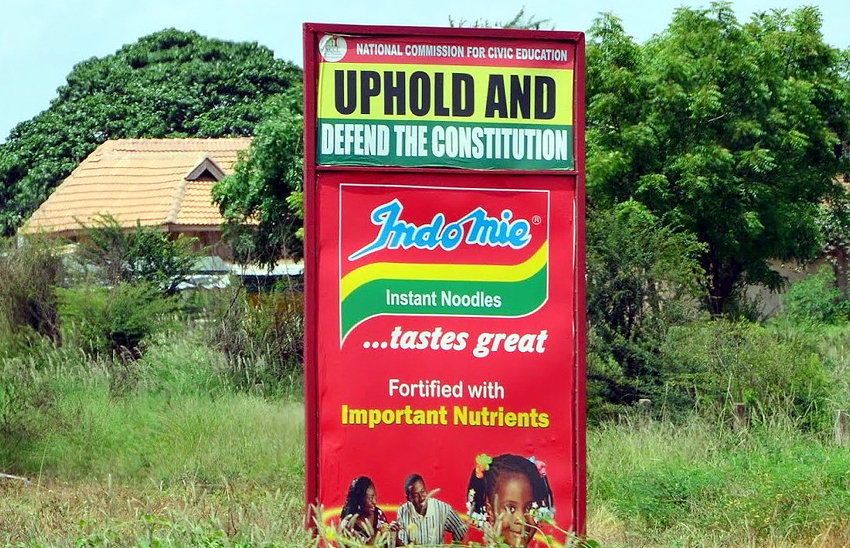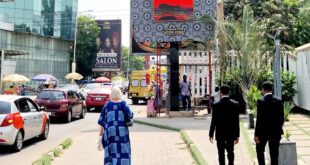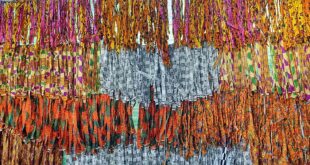The Public University Bill has been the cause for heated debate in Ghana, especially in academic circles. Germany-based journalist and scholar Tina Adomako explains how the new bill could herald the end of freedom of speech and research in government-owned institutions of higher learning in the country.
While the global coronavirus pandemic has challenged educational institutions and universities around the world to develop new forms of teaching and learning and make higher education more sustainable, the government of Ghana seems to want to set back the concept of free thought and progressiveness in higher education by several decades, by passing a new bill.
The so-called Public University Bill (PUB) has been the cause for heated debate in Ghana, especially in academic circles. With the new bill, President Nana Akufo-Addo’s government wants to restrict the fundamental academic freedoms that are taken for granted in democratic countries.
One of the government’s reasons for the proposed law is the claim that many universities have “veered from their core disciplines.” The government’s second rationale is that universities have evidenced financial improprieties and must, therefore, be better regulated. The new law allegedly plans to address these shortcomings.
At first glance, this sounds quite sensible. But based on this claim, the President is to be given the power to appoint the chancellors of all public universities. The chancellors are currently appointed by the university councils. If the bill is passed, all these positions could be filled with party-friendly candidates in the future. The chancellorship of a university would thus become a partisan position.
There are so many examples that show how such policies prevent sustainable development on the continent. After a change of government, projects started by the previous administration are rarely continued since, often, management positions in ministries and offices are assigned according to party affiliation. Should this system now be extended to universities, it could herald the end of freedom of speech and research in institutions of higher learning in the country.
Many teachers and students have already spoken out against the bill. The Ghana Academy of Arts and Sciences and the University Teachers Association of Ghana (UTAG) launched a petition against the PUB in June. “One of the reasons for the bill is that universities have demonstrated financial inadequacies and therefore need to be better regulated. The idea that public universities would do better under the direct control of ministries and politicians regularly embroiled in corruption scandals is almost ridiculous,” says Prof. Adomako-Ampofo, member of the Ghana Academy, who helped launch the petition.
Why a new law now?
Elections will be held in Ghana in November, and many see the PUB as Akufo-Addo’s attempt to win votes. He won the last election with his “free SHS for all” campaign (SHS for Senior High School) with which he promised to introduce free secondary schooling for all children. Education is highly prized (and priced) in African countries and seen as the route out of poverty.
But in Ghana, as in most African countries, school attendance depends heavily on the financial situation of parents. Formal education ends for most children after primary school. Many parents cannot afford to send their wards to secondary schools. With the “free SHS” promise, Nana Akufo-Addo was therefore able to win many votes, especially among the rural population.

Hastily introduced after President Akufo-Addo’s entry into office but without a sustainable concept, the “free SHS policy” is now spewing out hundreds of SHS graduates who, for lack of other perspectives, aspire to the universities. But the universities are already overcrowded. And the bill would allow the government to more easily overcome institutional resistance to the admission of students far in excess of the capacity of public universities. In an open letter to the government, UTAG criticized the “‘worrying’ powers conferred on the Minister of Education to issue guidelines for the operation of the university and the provision to subtly “control” the admission process at universities.”
The possible misuses of the PUB
Although Ghana is today often praised as being one of the most democratic African countries, it has also experienced a number of military dictatorships and autocratic governments in the past. Older Ghanaians still remember 1978, when students, doctors, lawyers, and other professionals expressed their dissatisfaction with the then military government through a series of general strikes and how the regime reacted with harassment and intimidation.
Doctors of the University of Ghana’s medical faculty were driven from their service homes by armed soldiers without warning, people from rural areas were housed on university campuses, while students were forced to vacate their halls of residence.
Universities in Ghana, as in many other African countries, have historically been the place where voices are raised against abuse of power, where the ills in society are openly addressed. They are the nucleus of political discourse in the country – and consequently the target of state aggression. Time and again, the police are sent to the universities to suppress student protests, most recently in 2018 under the current government.
The 1992 Constitution learnt from mistakes of previous years and firmly enshrines the freedom of academic institutions. The Constitution prohibits the president from taking up the position of chancellor of a public university and explicitly guarantees “academic freedom”. Ghana is among a minority of 14 countries on the continent that protect this freedom by constitution.
Now Akufo-Ado’s government is trying to circumvent the provisions of the constitution. The new PUB bill will make the president de facto the head of all public universities. He would then have the power to appoint the chairmen of the university councils and the majority of its members. The bill also plans to reduce the number of council members from about 21 currently to 13 in future. The majority of these – eight – (currently four) would be appointed by the President.
In addition, the new law would allow the president to dissolve the council “in case of emergency.” What is considered an “emergency” is not specified. This could lead to the suspension of the top administration of universities during elections, as is already the case in many public institutions in the country. Moreover, an incumbent president could potentially intentionally cause such an “emergency” to maintain his own power.
The law would also allow the government to exert a strong influence on curricula and to issue “guidelines on policy issues.” Universities would have to follow these guidelines. These cover a range of activities, from research collaborations to the establishment of new academic programmes. This clause, together with others, reduces the autonomy and ability of public universities to respond to changing research priorities, funding opportunities, and the needs of students and faculties in dynamic national and global contexts. Subjects that lead to critical thinking could then be a thing of the past.
The bill could lead to the silencing of critical voices in the University Council, and academic institutions could be brought to toe a line determined by government. In effect, it would result in a gradual erosion of democracy, the silencing of a critical civil society.
In a radio interview on 4 September, the president acknowledged that UTAG’s criticism was partly justified. President Akufo-Addo promised that his government would review some points, but that basically, his government intends to go ahead with the bill: “The basic idea of the bill and the justification for it are undeniable,” he said in the interview.
READ ALSO Meet the Ghanaian driving digital literacy in one of Africa’s fastest-growing economies
 THE AFRICAN COURIER. Reporting Africa and its Diaspora! The African Courier is an international magazine published in Germany to report on Africa and the Diaspora African experience. The first issue of the bimonthly magazine appeared on the newsstands on 15 February 1998. The African Courier is a communication forum for European-African political, economic and cultural exchanges, and a voice for Africa in Europe.
THE AFRICAN COURIER. Reporting Africa and its Diaspora! The African Courier is an international magazine published in Germany to report on Africa and the Diaspora African experience. The first issue of the bimonthly magazine appeared on the newsstands on 15 February 1998. The African Courier is a communication forum for European-African political, economic and cultural exchanges, and a voice for Africa in Europe.
































